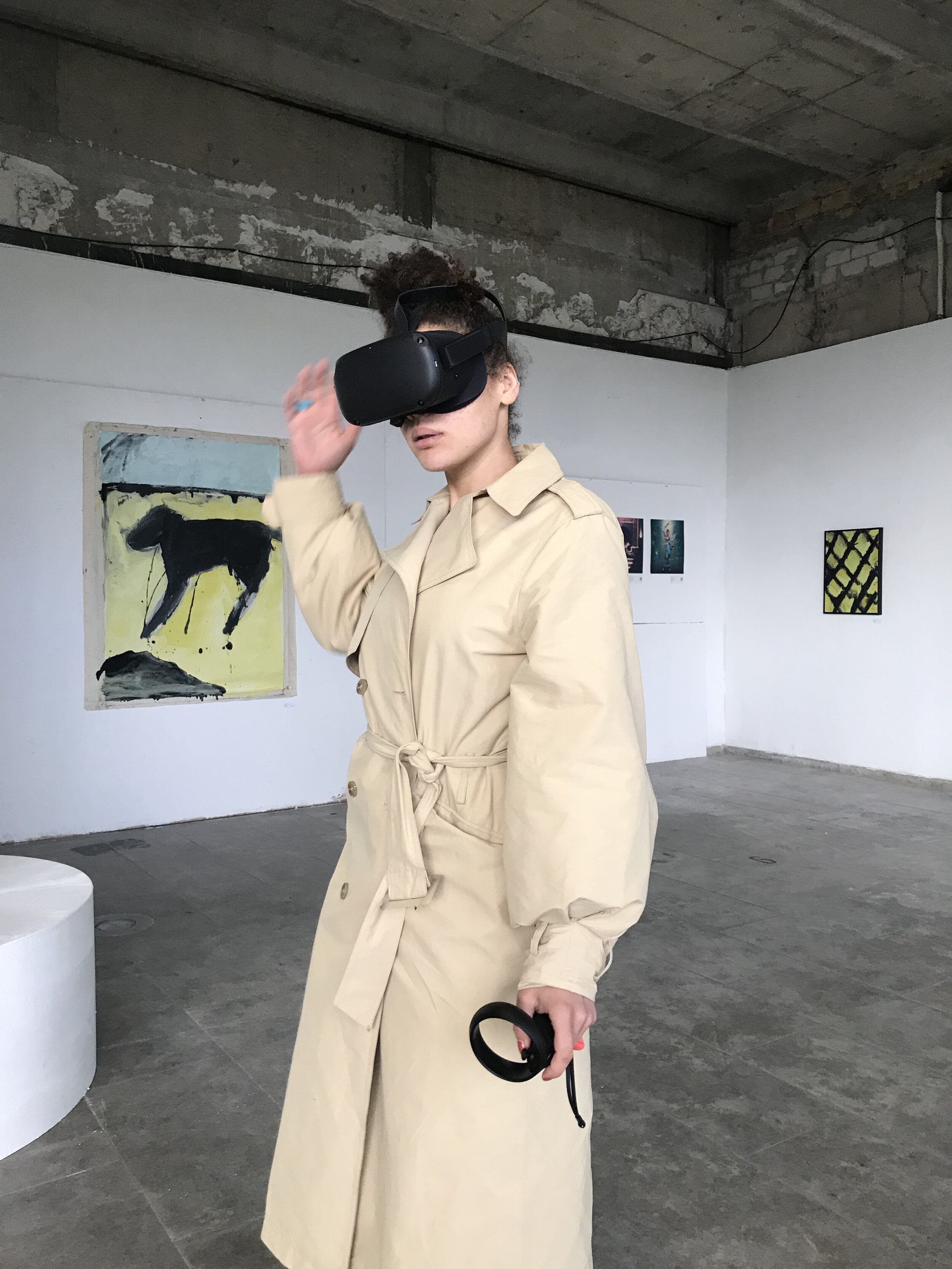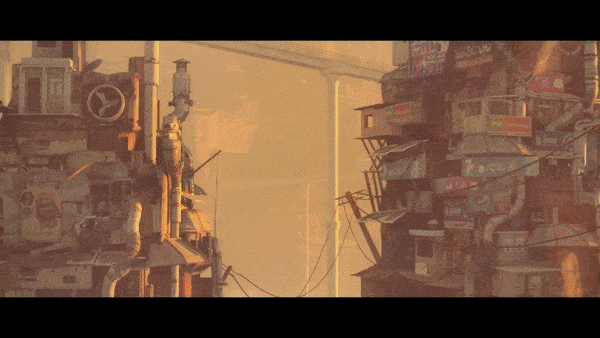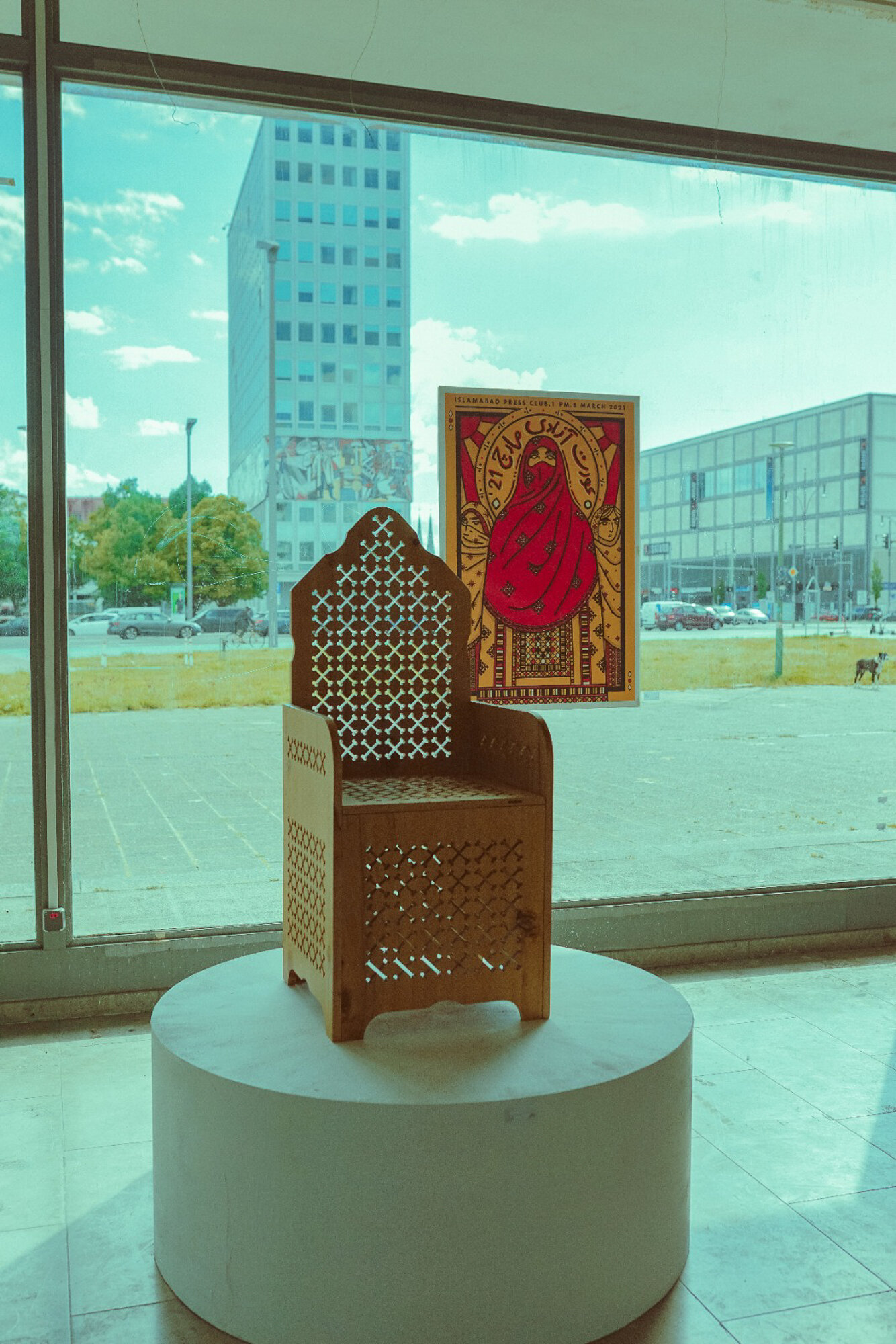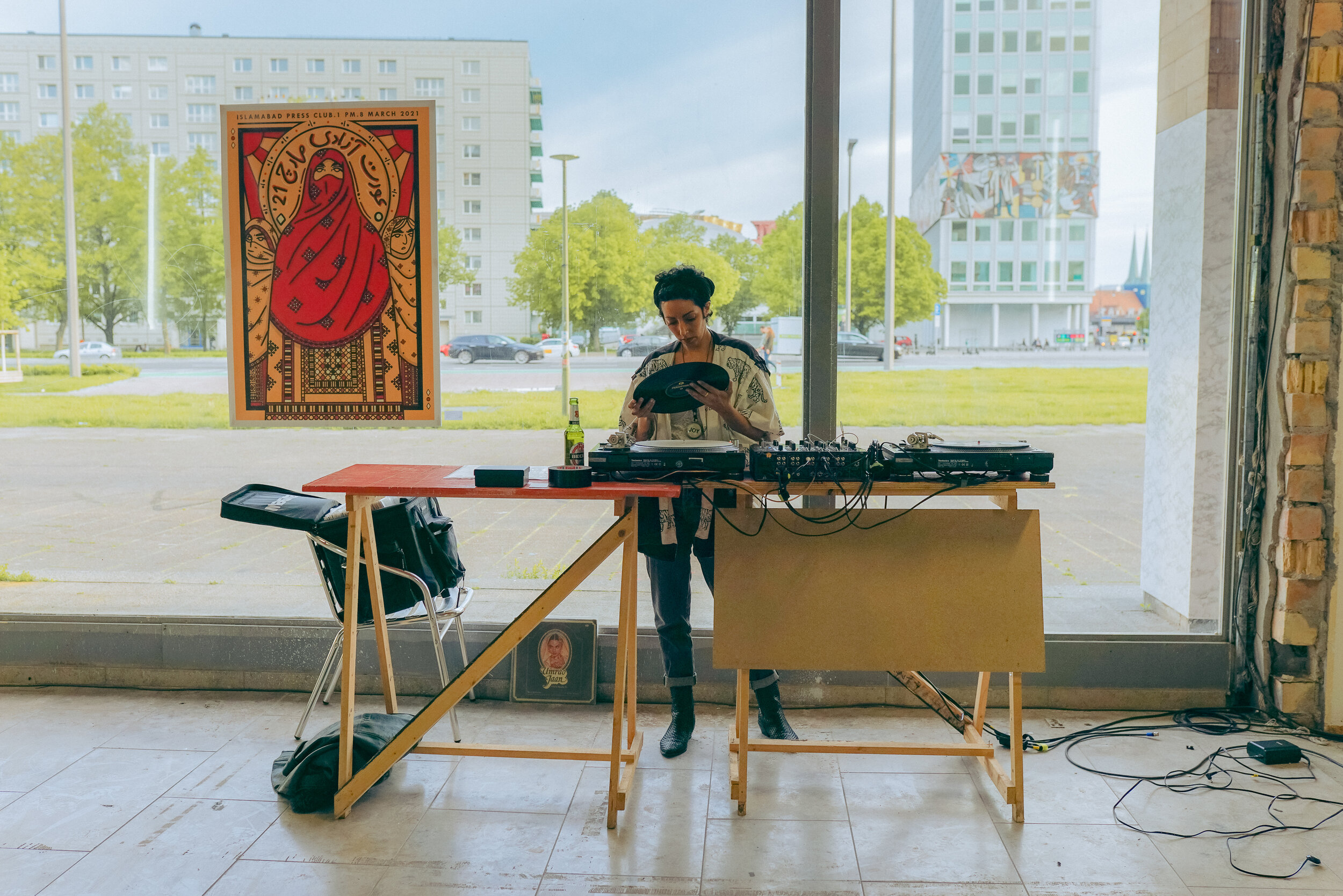PEEPAL & BANYAN
Artwork by Bibi Hajra
Borrowing the names of these two trees from the Indian Subcontinent, this multi-disciplinary exhibition explored the work of contemporary Pakistani artists in the context of a globalized art scene. By virtue of their spiritual significance, Peepal and Banyan epitomise the flow of life across generations in South Asia. Their wide crowns may provide shelter, representing peace and sociality, just as their rhizomatic roots, folds and multiple stems may evoke both diversity and confusion. This tension between traditional ideals and innovative efforts very much shapes modern Pakistani cultural experience.
The exhibition opened up a dialogue between the local and the global, between critical agendas and historical traditions. It amplified discourses around shared responsibilities and engaged artistic production as a political tool. Dance, performative arts, illustration, film, photogography and digital media created an emotional portal to contemporary South Asian realities and a starting point for collaborative thinking. Curated by Benjamin Merten, Amna Mawaz Khan and Zara Sajid. Artworks by:
Waseem Ahmed, Amber Arifeen, Ahmed Baloch, Omar Gilani, Sara Farid, Bibi Hajra, Isma Gul Hasan, Daniel Hopp & YAYACLA, Imran Hunzai, Natasha Jozi, Shireen Ikramullah Khan, Akeli Larkian Group, Amna Mawaz-Khan, Franka Marlene Foth w/FMKF, Shehzil Malik, Arafat Mazhar, Mahera Omar, Abdullah Qureshi, Jawad Sharif & Haroon Riaz, Abi Tariq, a.o.























Opening Performance 14.05. // 6pm-23pm
IBTIDA - EP02
by Amna Mawaz Khan & Franka Marlene Foth (FMKF collective)
FMKF collective founded and curated by trans media choreographer Franka Marlene Foth stands for versatility, artistic exchange, the advancement of dance in contemporary arts and dancing for the sake of it. For Peepal & Banyan, FMKF collaborated with Pakistani choreographer Amna Mawaz Khan for the opening night of the show.
Dancers : Camille Jackson, Janan Laubscher, Yi-Wei Tien, Amie-Blaire Chartier
Music for Ibtida : Atiq-ur-Rehman
Music for EP02 : Marlon Beatt
Styling : Christian Stemmler
Photo by FMKF collective
Panel & Performance: 15.05. // 6pm
Politics of Artistic Identity
with Amber Arifeen, H.E. Dr. Mohammad Faisal, Ambassador of Pakistan, Sara Farid, Philipp Zehmisch, Lorenz Strittmatter, moderated by Zara Sajid
Pakistan has a burgeoning art scene; most of which remains unseen globally due to various reasons. There are many obstacles that one faces daily due to the dominant patriarchal structure, the increasing religious intolerance that converges with politics and therefore affects the overall socio-cultural climate. Freedom of expression is a complex subject and remains debatable. Through the perspectives and experiences of each of our speakers, we unraveled the multiple layers that exist within the creative field and discussed the challenges faced due to the dominating socio-political construct that is widely prevalent.
Performance: 15.05. // 7.30pm
Mirror Piece I
by Abi Tariq
In the context of a post-colonial existence, the issue of privilege, presence and power are up for reconsideration. The photo series ‘Freedom and Privilege’ presents the body as a means with which to research, questioning the social imaginaries embedded in the way we move, speak and love. Classism, illiteracy, superiority, poverty, alpha-energies and subordination; these are some of the uncensored innards exposed, of a privileged South Asian thought, caught in the paradox of itself.
Through a live performance engaging the various elements of the exhibition Abi, in dialogue with the viewer, questioned behavioral culture and social expectation through vulnerability and domination.
Abi Tariq during his performance
Panel, 16.5. // 6pm
Queer Elsewheres
with Imad Gebrayel, Omar Kasmani and Abdullah Qureshi
This three-way conversation took cue from Kadji Amin’s invitation to think of the meanings that might adhere to queer if we were to journey with it. More precisely, what happens when queer as imagined in or via a distinct location – Western-Europe-and-North-America for instance – takes on life in other historical, geopolitical, conceptual and cultural settings? In exploring our own otherwise ways of thinking queer, we also question, for instance, whether queer history is always only a history of queer activism (narrowly defined, gay rights and so on)? The three panelists discussed if we can desire more capaciously, a history of queerness per se, that makes space for and is made up of other ways of being queer in the world?
Omar Kasmani (right) in conversation with Imad Gebrayel and Abdullah Qureshi (on screen)
Film Screening and Q&A: 20.05 // 7pm
NATARI (2021)
A film by directors Jawad Sharif & Haroon Riaz
Natari, translated from Sindhi as ‘anchor’, tells the story of the potential conflict caused by climate migration, the continued use of the illegalized bullho net by the powerful, and its impact on local fisher communities and families such as that of Ayoub Sehto in the endangered Indus Delta region.
Fisherman, artist, and political activist Ayoub Sehto and his educated yet unemployed son are stranded with their family on the inhospitable island of Kharo Chan in the shrinking and sinking Indus Delta. Due to climate change caused by heavy damming on the river, illegal fishing nets being used by those with influence, the Kharo Chan Island has lost its previous ecosystem, is devoid of drinking water & fishing opportunities- therefore its inhabitants struggle to migrate to a mainland city for a better life and possibility for a livelihood.
Film Screening of Natari
Panel: 22.05. // 6pm
Ways of Seeing: On Visibility and Opacity
Hajra Haider Karrar in conversation with Anam Abbas, Sadia Khatri and Nida Mehboob
This conversation engaged with female storytellers using the moving image and prose as their medium. These women reconfigure ways of seeing and mainstream perceptions by unraveling the complex layers of post-colonial, capitalist, and patriarchal South Asian societies. Navigating through social and political surveillance, they devise visual and textual formats that acknowledge and maintain the importance of opacity and the precarious existence of multiple realities, raising questions of gender, nationhood, and belonging.
Panel: 23.05. // 6pm
Aspiration and Failure in the Everyday
Hajra Haider Karrar in conversation with Bani Abidi
The visual artist, Bani Abidi employs the moving image as a tool to negotiate harsh and often absurd realities. Using an engaging and subtle tone of humor, she draws on instances from the everyday underlining and mocking corrupt and failing power structures that shape social perceptions of success and belonging. In this conversation, we speak about her creative process the use of humor and its relevance to her subject matter, and her approach to the moving image.
Hajra Haider Karrar (left) with Bani Abidi
Panel: 23.05. // 7.30 pm
Listening Room II
An experimental A/V session with Karachi Community Radio, Catman MU, Slowspin, Perera Elsewhere, by invitation of Abi Tariq. Live visuals by 15sec.mp4
Alternating between digital transmissions from ‘elsewhere’ and living bodies ‘in real space’, we invite you to listen, and sway, allowing the magic of sound to be where and how we connect; carrying perfectly all that is unsaid. Transmissions include Slowspin’s eastern classical vocal and electronic sound/noise bath and Karachi Community Radio (KCR)’s ’Raag, Ras, and Realization’ where Shehroze Hussain dwells on a Raag on his sitar allowing the aesthetic and emotional essence (Ras) to be realized live, visually, by Jahanzeb Safder, who picks up the audio signal like a paintbrush. In real space, Karachi underdog(/cat) Catman MU brings an indie, low-key psych-rock absurdity which Perera Elsewhere shifts to a Berlin-deep DJ set to root the evening here.
Set by Perera Elsewhere w. live visuals by 15sec.mp4
Film Screening and Q&A: 27.05. // 7pm
REBEL OPTIMIST (2016)
As a documentary filmmaker, Mahera Omar explores social, urban and environmental issues in Pakistan through her do- cumentary filmmaking; such as the development of Karachi, education projects and adventure travel filming. Her film Perween Rahman - The Rebel Optimist won the best documentary award at the 7th Delhi International Film Festival and a special jury mention at the 6th Nepal International Human Rights Film Festival. The film documents the life of Perween Rahman who had dedicated her life for the poor of Pakistan. She surveyed the water supply to Karachi and pinpo- inted locations from where water is being stolen from the bulk supply lines. Her pionee- ring development of a low cost sanitation model for Orangi, led her on a collision course with the various mafias in the city. She was shot dead by armed assailants on her way home in March 2013, but her legacy should be handed over to the Berlin community in an evening screening. Teaser














